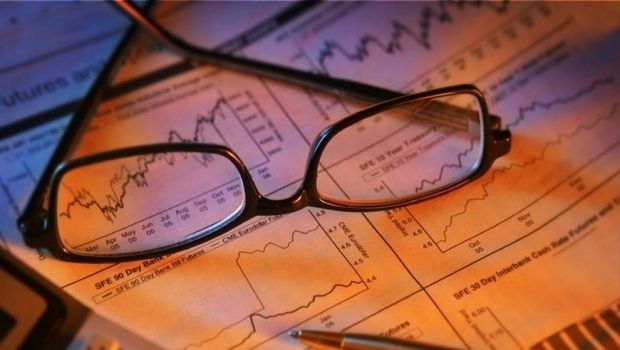
Week’s balance: Threat from IMF, moratorium for Russia, ban for Crimea
The Ukrainian government and the Rada have not yet found a compromise on the budget and tax reform; the IMF responded with the threat to stop lending to Ukraine; the return of "Yanukovych’s debt” is postponed; and the occupied Crimea remains without Ukrainian goods - these are the key economic news of the past week.
The past week was marked by confrontation between the government and the Verkhovna Rada’s Committee on the State Budget for 2016 and Ukraine’s tax reform. Both drafts were announced by the Ministry of Finance early December. The Cabinet did not dare to try and win both positions at once, instead asking the lawmakers to adopt a law on the national budget until the end of December, leaving the debate on the tax reform for the next year.
"We propose that the Parliament of Ukraine, together with the Government, finalize the draft amendments (to the tax system) and introduce them not from January 1 or February 1, but during 2016, after our lengthy disdcussion and a broad public debate, after the preparation for and perception of these tax changes by the Ukrainian business," said Prime Minister Arseniy Yatsenyuk at a parliament meeting.
During the hours of discussion, the deputies, including the Parliament’s Speaker, Volodymyr Groysman, sharply criticized the government projects.
"There is a rather unlikely possibility that we find a compromise on the basis of existing tax rules. It's impossible. And I very much urge the Government: the biggest problem is your tax reform. It cannot be transformed in a shape you have drafted," said MP Viktor Pinzenyk, member of the parliamentary committee on budget issues and ex-Finance Minister.
He questioned the realism of government forecasts for economic growth and inflation for the next year, predicting that this year’s scenario would be repeated when the fiscal deficit was covered by printing money, which led to a more significant hryvnia devaluation and higher inflation.
At the same time, the leader of the presidential faction, Yuriy Lutsenko, still urged colleagues to find a compromise, rather than simply reject government bills.
"We propose to postpone [consideration of] the government's draft Tax Code, to finalize it in the first quarter of next year, for it to be introduced, by law, in 2017. The accountants should not be hanging themselves on January 1," said the MP.
According to Lutsenko, the bill on the state budget should be adopted on the existing tax base, making only a few amendments, including measures to enhance the transparency of the VAT refund. The MP said that his faction did not support the amendments to the simplified tax system, proposing to keep the current groups of entrepreneurs subject to simplified taxation, although reducing the maximum turnover for the group No.3 down to UAH 5 million and introducing the system of monitoring of cash transactions in the second half of 2016.
Closing the noisy meeting, the speaker proposed to set up a working group of lawmakers and representatives of the Cabinet to continue the work on the project.
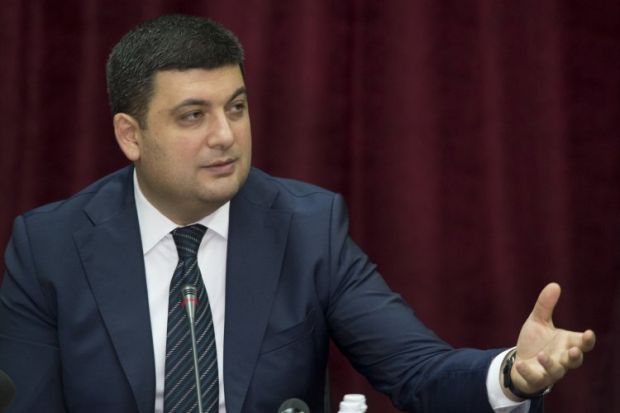
" It is important not to look for the ones to blame, but to do what needs to be done, to stabilize the situation. And I call for a responsible compromise, not for a populist one, not a political one, but the one responsible before the country. And I am convinced that this important compromise could be found in the walls of Ukrainian Parliament, to adopt relevant decisions," said Groysman, thus giving the start to more discussions in parliamentary committees.
Thus, the budget process is moving by the usual scenario, protracting to the Christmas holidays.
The key creditor of Ukraine, the International Monetary Fund, saw a high risk of failure of the budget process in a rather tough response by the lawmakers to the government initiatives, which may result in the adoption of an unbalanced draft. Therefore, the IMF warned the Urkainian authorities harshly that they should not play with fire.
On Friday, the Fund, which finances a 17.5-billion Ukrainian program, released a statement threatening to suspend loans. "Approval of a budget that deviates from program objectives for 2016 and the medium-term will interrupt the program and inevitably disrupt the associated international financing," reads the statement, referring to the deputy director of the IMF, David Lipton.
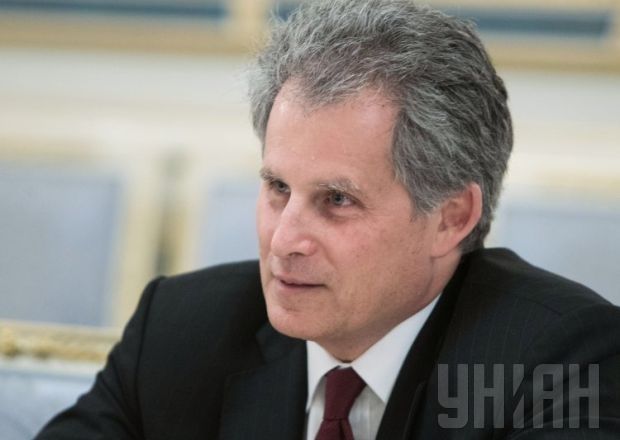
Lipton said, it is equally important to support the budget with the structural reforms envisaging the elimination of tax benefits and expansion of the tax base, as well as the optimization of government spending. That is, it will not be enough just to adopt a budget without a tax reform.
Following the IMF’s announcement, the head of the government held an extraordinary Cabinet meeting on Friday reminding the MPs that the budget should be adopted before the year-end. So, the next week will see this saga develop.
Russia without its $3.5 billion
Another saga which has been developing lat week was the so-called "Russian debt,” that is the eurobonds worth $3 billion, purchased in 2013 by the Russian National Wealth Fund to support the Ukrainian president at the time, Viktor Yanukovych. As back in those, as today, the majority of Ukrainians perceive this money that has been siphoned in an unknown direction as a bribe from a grateful Kremlin to the kleptocratic Yanukovych regime for its U-turn from Ukraine’s European integration path. Despite the dubious help of these billions to the development of Ukraine, Kyiv formally requested the leadership of the aggressor state in the summer of 2015 to start negotiations on the conditions of postponing the servicing and payment of this loan, within the framework of the overall program of restructuring of Ukraine’s public debt.
Last week, the IMF has recognized the official status of this loan in the framework of the Fund’s policy on arrears. Ukrainian Finance Ministry was OK with this decision, because earlier on December 8, the IMF has softened its policy of lending to countries with debt problems. So, the Fund will continue its cooperation with Ukraine, even given the non-payment of the "Russian debt.” Following the decision of the IMF on the official status of the debt, the officials from the government and the Finance Ministry said that Ukraine could not pay off the debt on the previous terms, as it is contrary to the criteria of the program of cooperation with the IMF. They also reiterated readiness for direct talks on restructuring.
At an extraordinary Cabinet meeting on December 18, Prime Minister Arseniy Yatsenyuk declared a moratorium on the payment of debts to the Russian Federation amounting to $3.58 billion, including the issue of the eurobonds, as well as the debts of Ukravtodor state holding and Yuzhne Design Bureau to the Russian banks.
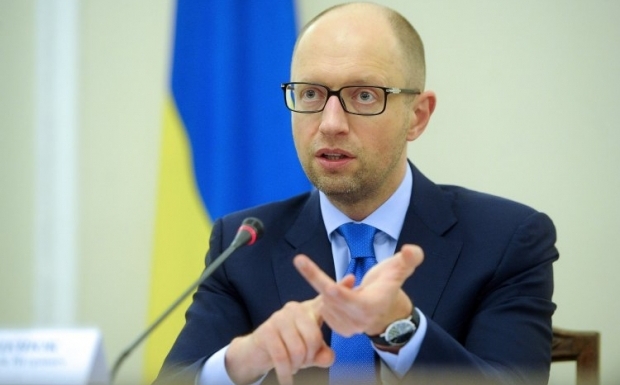
The Ukrainian government has imposed a moratorium on payments of the so-called "Russian debt." Once again I would like to remind that Ukraine [in November 2015] successfully completed a debt operation negotiated with a representative committee of bondholders. Due to the fact that Russia refused, despite our numerous efforts to sign a restructuring agreement, to accept our offer, the Cabinet is introducing a moratorium to suspend payments of the December 2015 eurobonds to the tune of $3.075 billion. This moratorium also encompasses Ukraine’s sovereign-guaranteed loans for Ukravtodor and Yuzhnoye owed to the Russian banks," Yatsenyuk said.
The Prime Minister stressed that any payments under the above-mentioned debts to Russia totaling $3.58 billion would be stopped from today "until the acceptance [by Russia] of Ukraine's restructuring offer or the issuance of the relevant court decision."
"Again, I emphasize that we are ready for legal action by Russia," Yatsenyuk said.
Crimea without the Ukrainian goods
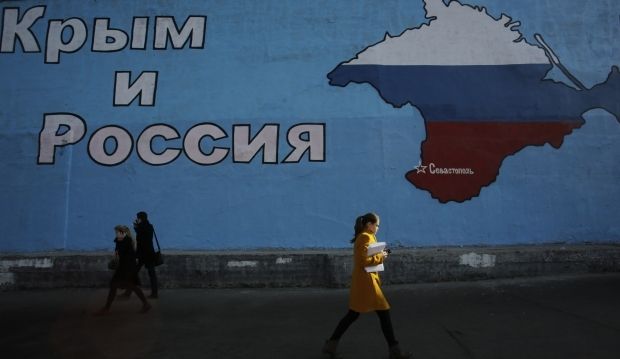
Last week, in addition to a transport and an unofficial energy blockade of Crimea, which Russia had stolen from Ukraine in 2014 as a result of the military operation, the Cabinet of Ministers of Ukraine decided to launch the product blockade of the occupied peninsula. According to the government, the supply of goods and services to Crimea from mainland Ukraine will be discontinued in 30 days.
The ban does not cover personal belongings of citizens in hand luggage or baggage, and socially important goods.
The Cabinet elaborated that a trade embargo does not apply to humanitarian assistance and power supply. The latter should be fixed with a special decision of the National Security and Defense Council of Ukraine.
The Crimean Tatars and other Ukrainian activists, who had started a transport blockade of the annexed peninsula in September, which was added by an energy blockade a few weeks ago, continue to insist on its continuation.
According to the leader of the Crimean Tatar people, MP Mustafa Dzhemilev, the prolongation of the contract [which ends on Dec 31, 2015] for the supply of electricity from Ukraine to Crimean is only possible under certain conditions. In particular, Crimea must be called in the contract as the Autonomous Republic of Crimea and the territory of Ukraine temporarily occupied by the Russian Federation.
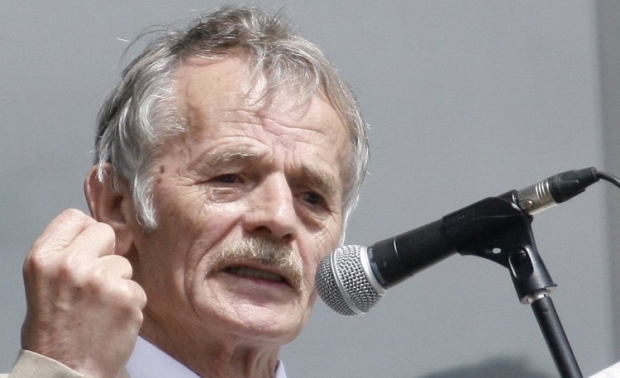
Dzhemilev demands the release of political prisoners and no more persecution of activists. He also demands guarantees of democratic freedoms for the Crimean Tatars in Crimea.
While Crimea continues to partly use the Ukrainian electricity, the Ukrainian Cabinet introduced last week a month-long state of emergency in the energy sector of Ukraine, after a six-month break. Under this decision, the government has instructed Ukrenergo state company to establish temporary restrictions on the export of electricity from Ukraine to the EU, as well as monitor the implementations of limits of electricity consumption across the country.
The cautious National Bank
Last week, the National Bank of Ukraine issued a decision following a monthly board meeting on monetary policy. The regulator did without the New Year’s surprises, keeping key interest rates at 22%, arguing that there is the need to mitigate the possible negative impact of external and internal factors on prices, and support the slowing of inflation to 12% at the end of 2016.
The NBU’s decision was predictable, since the inflation in Ukraine had resumed the November, reaching 2% compared with October. The NBU called the inflation’s dynamics in November expected, but noted the existing risks of increased pressure on prices due to the weak demand for Ukrainian exports and the devaluation of the currencies of Ukraine’s trading partners. Therefore, the central bank stressed that it was too early to lower the interest rate.
During the briefing, the head of the National Bank reassured that the bank lending may resume as early as by mid-2016, or, in any case, at the end of next year. Perhaps it is by this time that we should expect reduction of interest rates to a reasonable level, at which the market rates will also fall, thus stimulating lending.
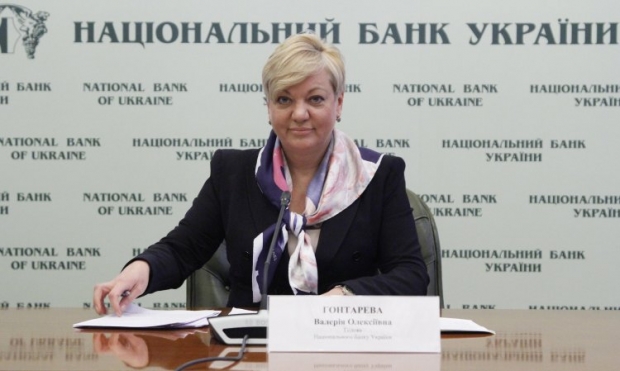
In addition, according to NBU governor Valeriya Gontareva, a number of laws enhancing protection of the rights of creditors needs to be adopted to revive lending. Also, a judicial reform must be conducted, while the law enforcers must deal with the problem borrowers, and the banks must be additionally capitalized depending on the results of stress testing. In other words, all roads lead to the Ukrainian parliament.
Polish generosity
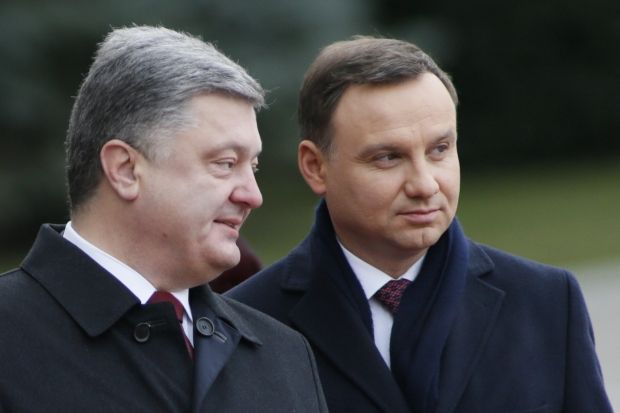
Warsaw brought some good news under the “Ukrainian Christmas tree". President of Ukraine Petro Poroshenko said at a joint press conference with President of the Republic of Poland Andrzej Duda During a Kyiv visit of Polish President Ahdrj Duda, President of Ukraine Petro Poroshenko announced during a joint press conference that Poland would open a EUR 1 billion credit line for Ukraine, to stimulate bilateral trade.
Also, Poland will give Ukraine EUR 100 million of loan assistance for cross-border projects with the aim of opening joint border crossing points and better mainitenance of inter-state checkpoints for pedestrians, as well as border infrastructure.
In addition, according to Yatsenyuk, who also held negotiations with Duda, Poland and Ukraine can continue the talks on the supply of electricity from the Khmelnitsky nuclear power plant to Poland, and the implementation of a Interconnector project, aimed at uniting the gas transportation systems of the two coumtries and allowing Ukraine to buy 8 bcm of gas per year, to ensure energy security by 2020.
Christmas holidays are coming next week to Ukraine’s catholics, but all Ukrainians will be waiting for the good news. Such good news would be a compromise between the "sworn friends" in the Rada and the Cabinet on the issue of the budget and tax reform.
Olha Hordienko (UNIAN)

